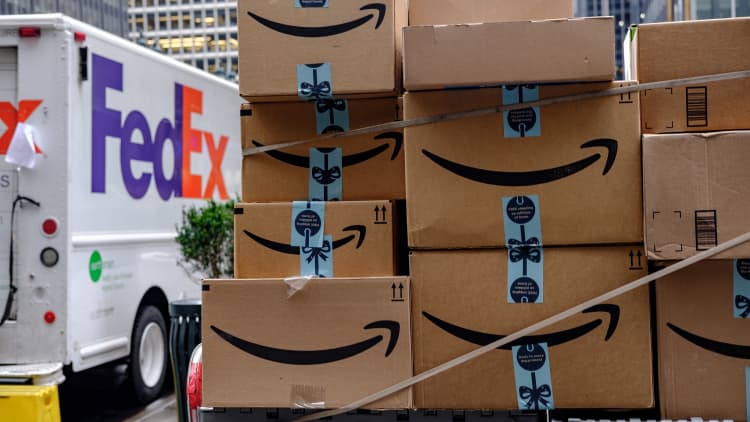
Adjustments to policies ‘deter consumers from returning’
According to Spencer Kieboom (founder and CEO of Retailer.com), retailers are reconsidering their return policies as rising costs squeeze margins. They may shorten the return window or charge a restocking fee. Pollen Returns, a return management company.
Gap, Old Navy and Banana Republic are just a few of the stores that carry J. Crew, once a well-known store for its generous return policy which lasted the life of a garment, has shortened its regular return window to one month. J. offers holiday shoppers some relief: Crew and other companies offer extended holidays returns and exchanges.
At Anthropologie, REI and LL Bean (which also once promised lifetime returns), there’s now a fee — all around $6 — for mailed returns.
Kieboom stated that these adjustments to return policies do not cover costs. “They are really there to deter consumers from returning.”
“The supply chain is designed for one direction”
A driver from United Parcel Service (UPS), pushes a cart of packages toward a van that is waiting for him on a New York street.
Victor J. Getty Images| Bloomberg | Getty Images
Blue Yonder senior director Erin Halka stated that free returns were a convenience model customers appreciated because of the explosion in online shopping during the pandemic. She said that retailers are now paying more for shipping and labor, which makes it difficult to sustain.
She said that charging for returns is one way to pay a portion of the cost. Customers may be discouraged from buying too many goods, as at least 10% cannot be resold.
Kieboom explained that retailers often struggle with excessive inventory. “Often returns don’t end up back on shelves,” which can cause a problem in retailers who are trying to cut costs and improve sustainability.
It is easier for customers to change the return policy than increase the purchase price.
Lauren Beitelspacher
Babson College Associate Professor
Lauren Beitelspacher is an associate professor at Babson College and chairs the marketing department.
Beitelspacher stated, “The more money retailers lose in returns the more they will have to make up for it by raising prices.”
“Changing the return policy is easier for customers to swallow than increasing the purchase price.”
How to avoid returning fees
Despite this, online shoppers still love free returns as much as free shipping. According to PowerReviews’ recent survey, 98% said that free shipping was the most important factor when shopping online. Then, more than three quarters agreed with the statement about free returns. The preference for a free-return policy was even greater among the wealthy.
Experts say it is important to understand the policies before buying if you want to have the option of returning. Halka stated that it is often not obvious. “You usually have to look into the fine print.”
She stated that there will be limitations on what can and cannot be returned. “A 30-day window of opportunity is common.”
Consider the return policy when making a purchase decision. It could have a negative impact on your bottom line. Kieboom explained that you need to choose the return policy that is most beneficial for your needs.
Beitelspacher suggests that you shop in person to minimize returns. “Most returns are due to regret over something not being what we expected. This expectation-reality gap is minimized when you shop in person.
Subscribe to CNBC YouTube.